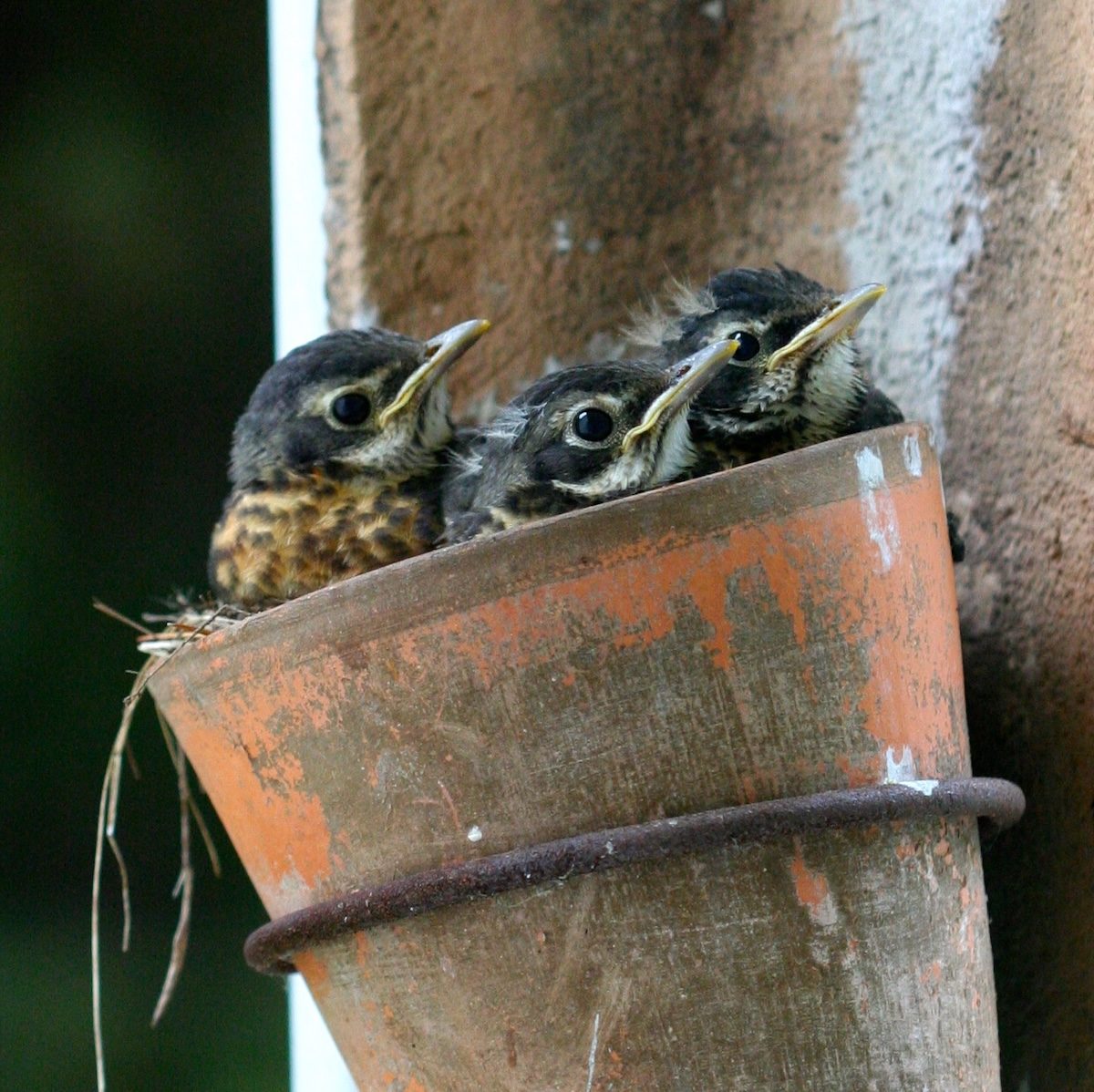We've all heard someone say, "Don't touch a baby bird!" Can you help or will the parents abandon it? Here's what you should know.

Can You Touch a Baby Bird or Will the Parents Abandon It?

You’ve probably heard it dozens of times: “You can never touch a baby bird! If a human’s scent gets on the baby, its parents will abandon it.” As with many pieces of advice that get repeated through the decades, we slowly start to accept it as truth — even when it shouldn’t be. Here’s what to know about this long-standing bird myth, and what you should and should not do if you find a baby bird or fledgling.
On This Page
Can You Touch a Baby Bird That Needs Help?

Simply put, human touch or “human scent” will not cause an adult bird to abandon its young. It’s difficult to say how this misconception originated, but, as Whitney Yoerger, communications and outreach manager for Indiana Audubon, explains, it is false.
“A lot of people believe that if our scent gets on a baby bird that the parents are going to reject the fledgling or nestling, and that’s not true,” she says. “I think even my parents told that to me, when I was young. I don’t know where that comes from! Maybe it’s a cautionary tale for not messing with nature.”

Whitney notes that because birds don’t have a well-developed sense of smell, they wouldn’t be disturbed by human scent and certainly wouldn’t leave babies behind because of it. “They don’t rely on that to recognize their young,” she says.
How long do baby birds stay in the nest?
When Can You Help a Baby Bird?

Of course, just because the “human scent” impact is a myth doesn’t mean it’s acceptable to interfere with baby birds at any opportunity. In general, Whitney advises caution; according to her, there are two situations in which it’s OK to step in.
The first is if you find a baby bird on the ground, and it doesn’t have pin feathers or developed wings. If you can look up and find that bird’s nest, then you can gently put it back. “Nothing is going to happen with the parents rejecting it,” Whitney says.

In most circumstances, Whitney recommends leaving fledglings alone. If a parent is nearby, she says to let the fledgling be; if a fledgling is alone and seems healthy, she also says to let it be. (Usually, its parents are somewhere nearby.)
If the baby bird is visibly sick, injured, or dangerously cold, that’s when Whitney’s second step-in situation occurs. “You could intervene and consult with a licensed wildlife rehabilitation center to go from there to give it care,” she says.
In addition, she mentions that if the baby bird is in the path of an obvious danger, such as a cat, it’s OK to move the fledgling to a safer location nearby.
These facts prove mother birds are amazing.
If You See a Baby Bird, Here’s What Not to Do

Whitney warns against excessive monitoring of nests. She says that continual human interference can stress the birds. The National Audubon Society also adds that continued disturbance from humans could cause nest abandonment or leave a scent trail for predators to follow.
Even in the case of bluebirds, which experts advise humans to monitor at certain points during nesting season, there are protocols that need to be followed.
“If you found a bird nest and you know it’s in your bush and you can go over and look at it; in those cases, I would say monitor it sparingly,” Whitney says. “Try not to disturb them.”
Next, find out if you can move a bird nest near your home.
About the Expert
Outdoor enthusiast Whitney Yoerger is the communications and outreach manager for Indiana Audubon.
Sources
- Alaska Department of Fish and Game, “Ask a Biologist: Will a Mother Abandon Her Young If Handled?“
- Cornell Lab of Ornithology, “If I Handle a Baby Bird, Will the Parents Abandon It?“
- National Audubon Society, “Know When Birds Think You’re Too Close to Their Nests“




















